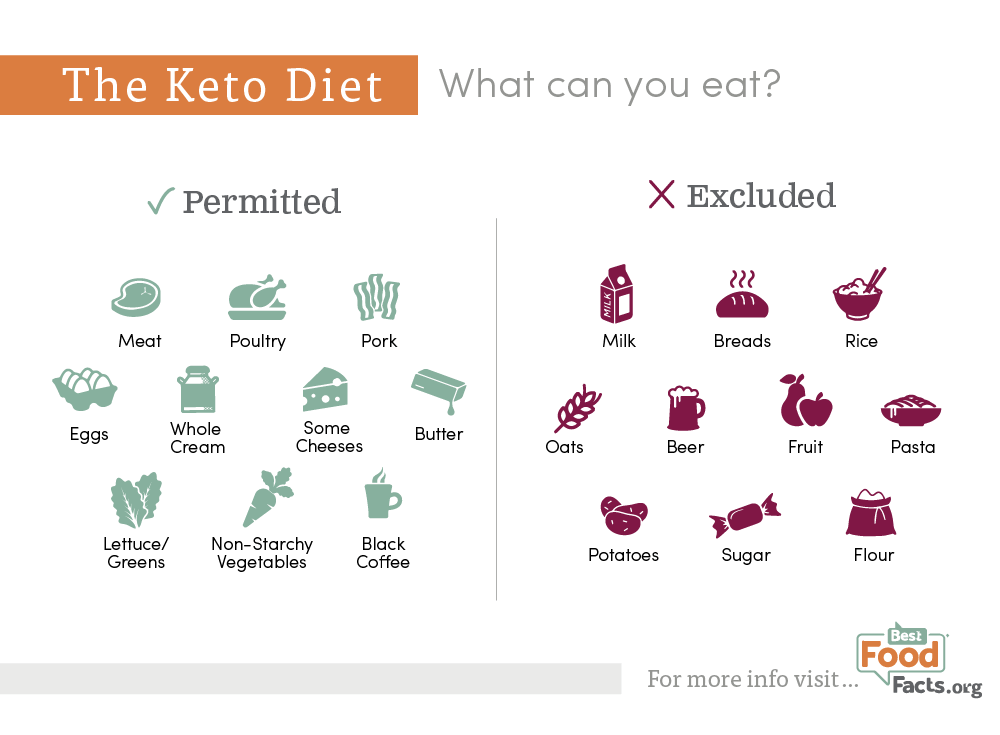
Is the Keto Diet Good for Weight Loss?
05/21/2019
You have seen celebrities such as Halle Berry, Megan Fox and Kim Kardashian and many of your Facebook friends discussing their latest diet – the keto diet. What is the ketogenic diet? Is it effective? Lona Sandon, Ph.D, RDN, LD, Assistant Professor in the Department of Clinical Nutrition at the University of Texas Southwestern Medical Center, addressed our questions.
“Different versions of the ketogenic diet have cropped up over the years, but the basic premise behind them are the same,” Dr. Sandon said. “It is a restricted carbohydrate diet that is typically high in fat and protein.”
Dr. Sandon states that one of the benefits of the ketogenic diet is that you can lose weight fast, but once you have lost the weight, it can be hard to keep it off.
The keto diet is a high-fat, low-carb diet that is said to maximize weight loss and boost muscle growth. As you limit your carb intake, your body goes into ketosis and resorts to burning stored fat in the body, thus allegedly leading to weight loss.
What is ketosis? Dr. Sandon explained that ketosis is a natural state for the body that it enters under times of long-term, inadequate calorie intake. Your body will also enter this state during starvation. Your body can go into ketosis when you are avoiding foods with carbohydrates in them.
“When there is not enough carbohydrate to provide the body with energy, then fat gets broken down and ketones get made to use as a source of energy,” said Dr. Sandon. “This is the state of ketosis.”
People who suffer from seizures may be prescribed by their doctors to follow a keto diet to help control seizures, but their diets are medically supervised. Their carbohydrate intake must remain low to be effective. However, there is some concern about how long your body can enter a state of ketosis before it causes harm. According to Everyday Health, it is not recommended to partake in the ketogenic diet for more than six months at a time.
“A short time spent in ketosis will likely not hurt you,” said Dr. Sandon. “However, long-term is not likely to be healthy as this type of diet does not provide all the nutrients we know are needed for optimal health. Also, if you are in ketosis for an extended period of time, you are likely not providing your muscles and bones with enough nutrition to keep them strong and healthy.”
According to Dr. Sandon, depending on the ketogenic diet plan, you may be required to limit your carbohydrate intake to 20 grams, or less, per day. “More lenient ketogenic diets promoted for weight loss might allow around 50 grams of carbohydrates per day and typically follow a gradual increase up to a certain amount, maybe 130 grams per day,” said Dr. Sandon.
In addition, the diet calls for eliminating some favorite foods. “No special treats like ice cream, chocolate or potato chips,” said Dr. Sandon. “I do not recommend avoiding these foods.”
Something to keep in mind if you are debating starting the diet are the side effects that may come from it. These side effects include tiredness, headache, irritability and long-term nutrient deficiencies. If you are diabetic, you are at risk for low blood sugar.
If you choose to partake in the ketogenic diet, you have no reason to fear ending it. There are not any associated health risks for converting back to a normal, balanced diet. According to Dr. Sandon, by ending the diet, you will be better off mentally and physically.
The keto diet is a popular diet that requires carbohydrate restriction. The diet causes the body to enter a state of ketosis, which can promote weight loss. However, there are side effects and concerns about getting all necessary nutrients.



























